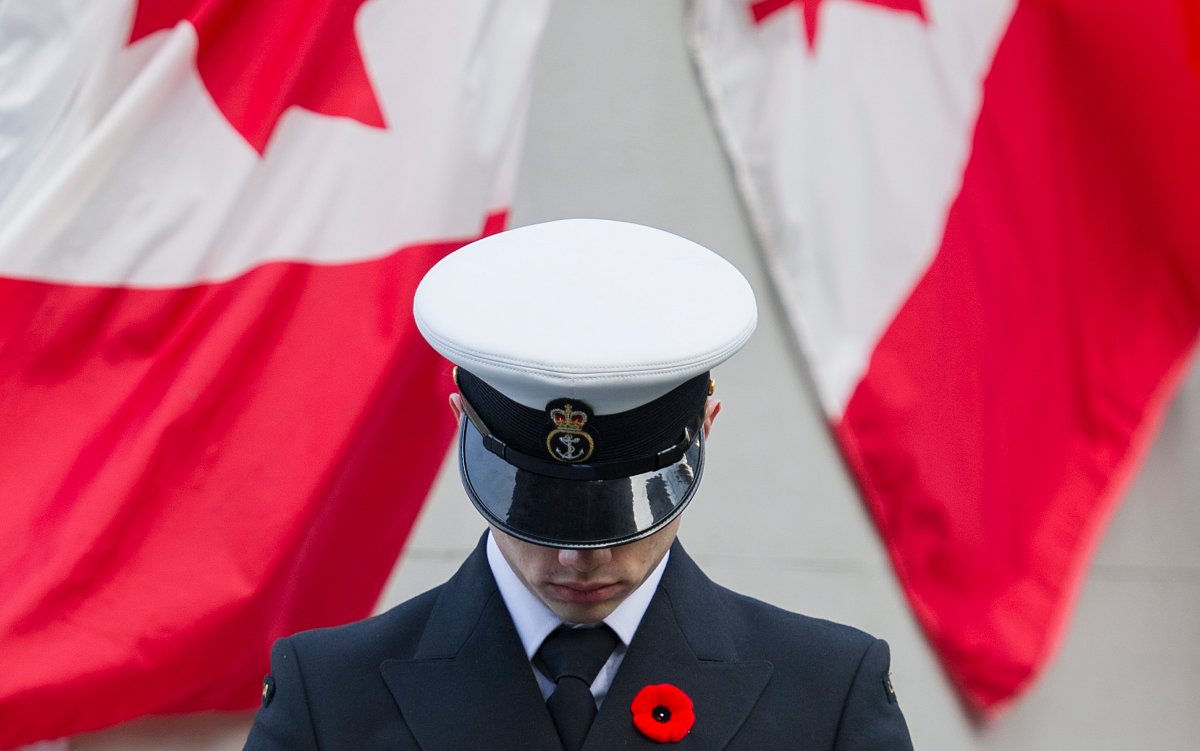When Walter Callaghan told someone about the nightmares, the answer was clear.

“I understand,” said his fellow officer, someone he trusted. “I’ve got that, too.
“Don’t let anyone else in the unit know. Your career will be over.”
It was 2005, and young soldiers Callaghan had trained and recruited were coming home from Afghanistan with debilitating wounds. Or weren’t coming back at all.
“That started haunting me. Did I train them well enough? If I were over there there could I have done something differently that would have prevented this?”
But when he looked for help, he got none. When he turned to booze and painkillers instead, it made things worse. He lost his beloved platoon commander position as his health deteriorated.
INVISIBLE WOUNDS: Crisis in Canada’s military
If it weren’t for a chance meeting with Romeo Dallaire at a conference months later, Callaghan wouldn’t have had the fortitude to fight for the treatment he needed.
“I’m there in the reception line. … He gets to me, shaking my hand, he goes, ‘I know that look. We have to talk. … We need to get you help.'”
Many months and psychiatric appointments later, he got a medley of diagnoses — including post-traumatic stress disorder, a condition, as a medic, he was supposedly trained to recognize but which he couldn’t believe he had. This was something that afflicted other people.

Get weekly health news
“I couldn’t accept that it had actually happened to me. … It actually took me quite a while to accept a PTSD diagnosis.”
A decade later, Callaghan’s still fighting — for health care that covers his treatment; for benefits to cover lost earnings.
And he’s among a growing number of Canadian soldiers and veterans who’ve had it with this government.
“The federal government’s rhetoric is trying to avoid the full cost of war,” he said.
“We [soldiers] are the last ones who actually want to go to war. We’re the ones who actually know what that means. … We’re more than capable, but we know what the cost is.”
Members of the military — whether past or present — hardly comprise a demographic you’d expect to form an active “Anyone But Conservative” group. But it’s happened.
The relationship between Canada’s government and its troops has been tense as people returning from Afghanistan and elsewhere returned to a country many said was unprepared to help them heal.
An award-winning Global News investigation last year shed light on the invisible psychic wounds Canada’s veterans are struggling with even as a spate of soldier suicides put renewed scrutiny on psychiatric resources available (and those so often out of reach).
A Global News report in November revealed that Cpl. Nathan Cirillo’s family would not have qualified for equal death benefits after he was shot to death at Ottawa’s War Memorial because he was a reservist, depriving his survivors of millions of dollars over the course of the death benefit. But Ottawa made a special exception for Cirillo.
- Michael Kovrig reflects on ‘brutally hard’ Chinese detention: ‘You’re totally alone’
- After controversial directive, Quebec now says anglophones have right to English health services
- Something’s fishy: 1 in 5 seafood products are mislabelled, study finds
- Conservatives set to table non-confidence motion Tuesday. What to expect
Within 24 hours of the Global News report, the federal government vowed to fix that death benefit inequity for all reservists. But five months later, Veterans Affairs said it was still working on addressing this and the unequal disability benefits reservists get.
Since then, Ottawa has changed benefits rules for reservists and their families and hired more case managers to help former soldiers.
As of July, 179 reservists or their families had benefited from the extended Earnings Loss Benefit, including 173 existing clients and six new applicants. Between April 1 and July 11, Veterans Affairs paid about $1.5 million to reservists and their families, an average monthly amount of $3,009 per person, a spokesperson said in an email.
But that hasn’t made veterans any less of a political football. Tom Mulcair, Justin Trudeau and Stephen Harper have all held media availabilities with backdrops of veterans, or sought to stage ads with them.
And it hasn’t appeased people like Callaghan.
“Nine and a half years, you could have done this, and you do it just before an election’s called?”
“It is an issue of bureaucratic systems failing. But I go after the Harper government because of the rhetoric they’ve been using, and because they’ve had nine and a half years to fix problems that were identified.”
That said, whoever forms the new government will hardly get a free pass from soldiers and veterans struggling to access services and make their way in the civilian sphere.
“If they don’t carry through, then we will be going after them,” Callaghan said.
“If you keep betraying the sacred obligation that Canada and its soldiers have to each other, then our sights will be set on you.”
He and his fellow ABCers plan to protest at Monday evening’s Munk debate on foreign policy at Roy Thomson Hall in Toronto.









Comments